In the workshop on environmental emotions, participants worked on yoga mats too. The Climate Emotions Wheel is visible at the center of the image. Photo: Juni Sinkkonen.
One hundred and twenty participants of various ages gathered in Strasbourg at the end of September to discuss youth, democracy, and the climate crisis, under the guidance of the Youth Partnership, a cooperative body of the Council of Europe and the European Union. During the three-day symposium (Visit an external site. The link opens in a new tab.), an open access book on the topic was published (Youth and democracy in the Climate Crisis, with Tomi Kiilakoski, senior researcher at the Finnish Youth Research Society, among the editors).
The support of the Council of Europe enabled a broad range of participants, including many from Eastern Europe. The symposium welcomed numerous young climate activists, as well as youth workers of different ages, EU officials, and researchers.
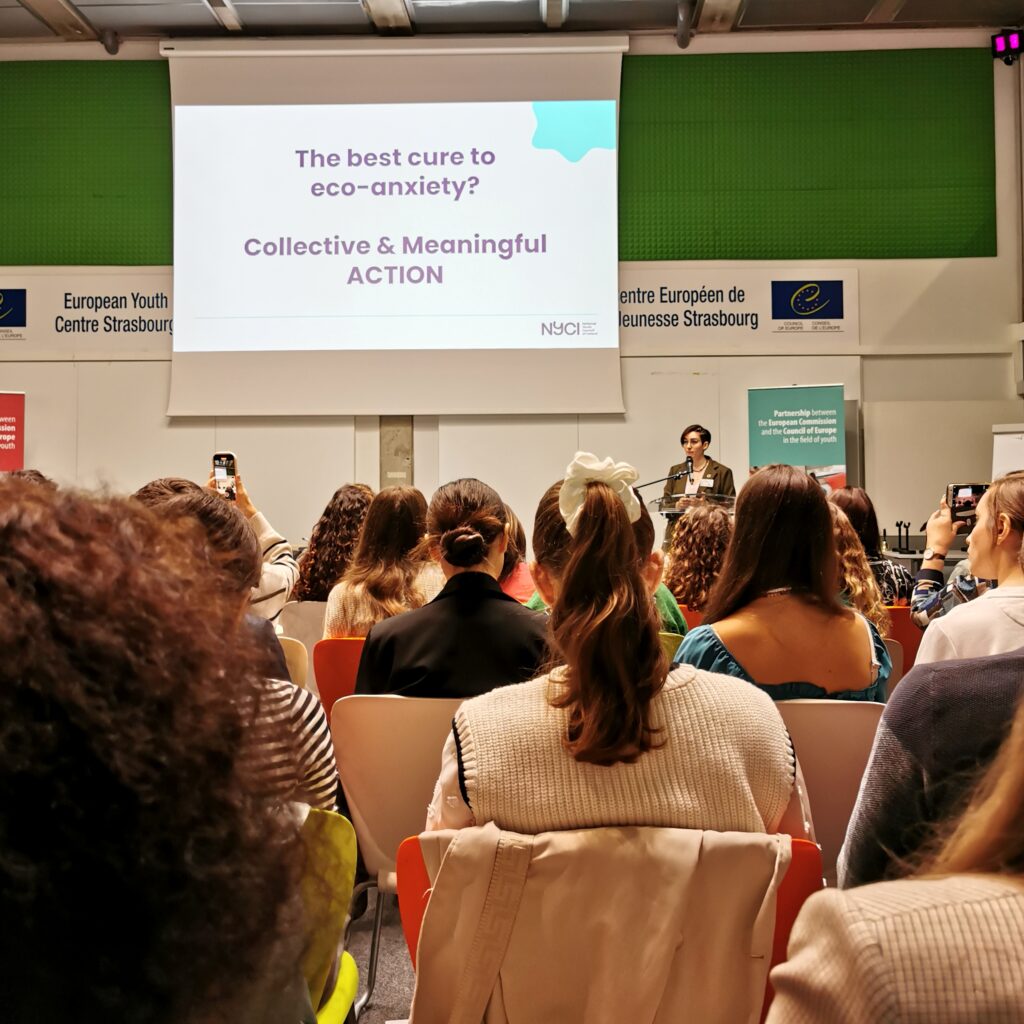
Most of the work took place in five parallel thematic groups. This text especially discusses the group process that focused on young people’s environmental emotions and mental health during the era of the climate emergency. The group’s work was facilitated by Esther Vallado from Spain, supported by several Finnish representatives. Sofia Laine, research professor at the Finnish Youth Research Society, served as the rapporteur for the group. Two other Finnish experts were invited as contributors: docent Panu Pihkala and ecopsychologist and doctoral researcher Juni Sinkkonen. Thus, Finns played a significant role in bringing attention to eco-emotions.
New Methods for Managing Emotions
Docent Pihkala also contributed a chapter to the book published at the symposium, focusing on climate emotions and youth work. In the thematic group, Pihkala presented research on the topic and focused on practical applications. The Climate Emotions Wheel (Visit an external site. The link opens in a new tab.) can facilitate discussions about emotions among both adults and young people. The Process model of eco-anxiety (Visit an external site. The link opens in a new tab.) can help to explore people’s complex journeys in the midst of the ecological crisis. Recognizing different forms of ecological grief (Visit an external site. The link opens in a new tab.) supports constructive engagement with them.
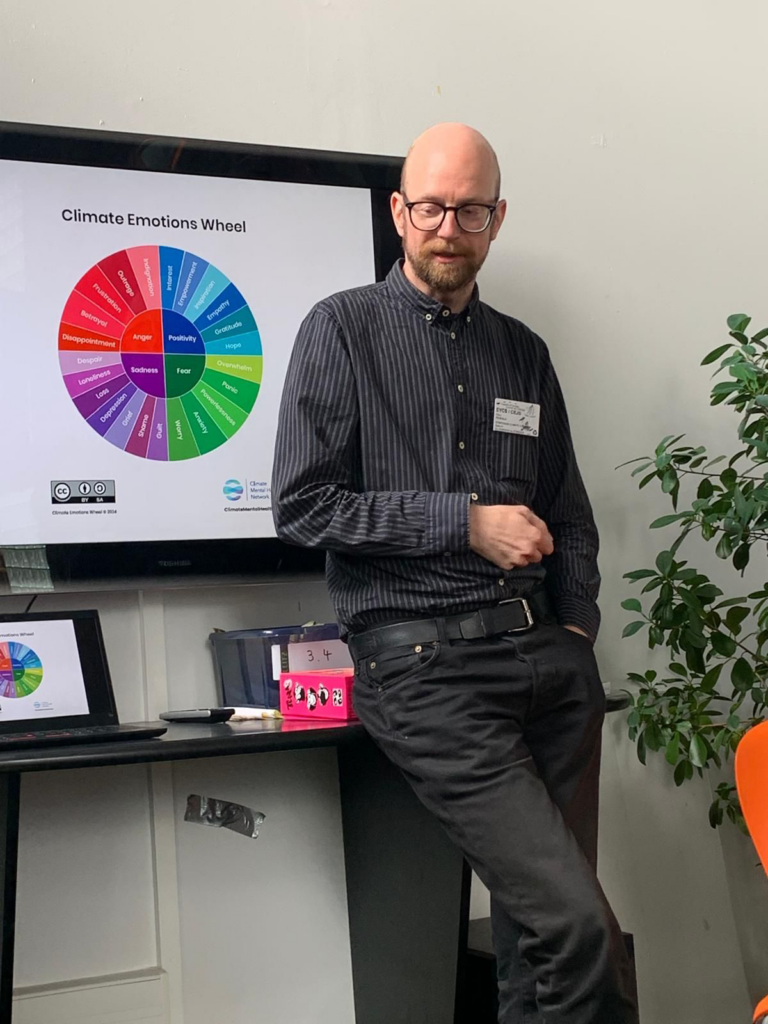
The work continued the next morning with a workshop by Juni Sinkkonen on psychological coping mechanisms and emotional regulation for eco-emotions. In the workshop, participants strengthened their body-mind connection and emotional skills through various concrete somatic, interactive, and creative exercises. The participants provided overwhelmingly positive feedback, considering the bodily methods a very welcome change to the usual seminar program.
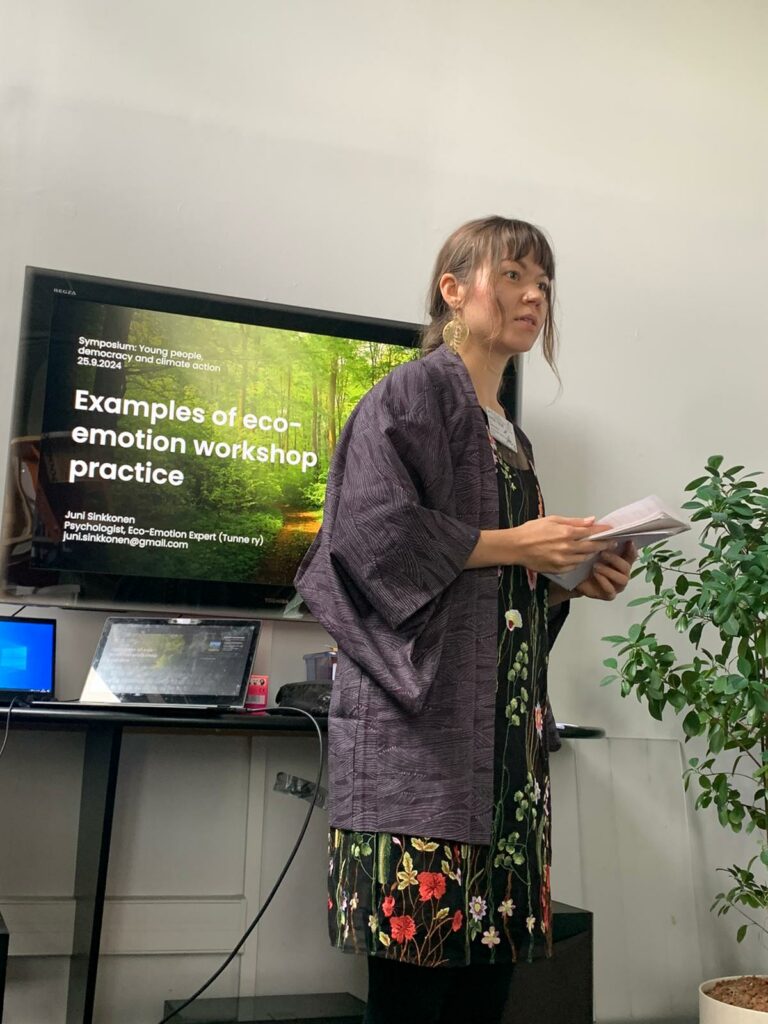
Sensous Knowledge as a Revolutionary Process
One of the authors of this text, Sofia Laine, had already researched European youth policy and the democracy of meetings in her doctoral dissertation (2012). Drawing on the concepts of Minna Salami (2020), the meetings are historically and institutionally structured around Euro-patriarchal forms and postures of knowledge and knowledge production. “Thus, knowledge production lacks a soul,” writes Salami (p. 32). Against this historical backdrop, it seems that we collectively carried out a revolutionary process.
In our working group, we succeeded in offering participants an alternative way to engage with place, body, and emotions. From this position, it became possible to open up to respectful, honest, and open dialogue with other participants. Quoting Salami, we brought “sensous knowledge” into the symposium, a medium which has traditionally focused only on talking and listening heads. Such one-sidedness has been a major reason why the ecological state of the planet is as imbalanced as it is: politics has not been conducted by people as holistic psycho-physical-social entities and emotions have not been listened to (see also Laine 2023). Moreover, decision-making has been isolated from multi-species environments.
As rapporteur, Sofia led a mindfulness exercise for the entire symposium during the plenary session, asking:
“What would change if these symposiums were held outdoors, in multi-species environments? What would change if instead of chairs, we would start by lying on yoga mats, grounding ourselves, embodying ourselves, and working as psycho-physical-social beings, shifting postures and perspectives? What would change if, instead of the structures at the front [representing Euro-patriarchal hierarchy], we sat in a circle in the plenary (i.e., ‘council practice’), where everyone had equal time to speak, reflect, and share?”
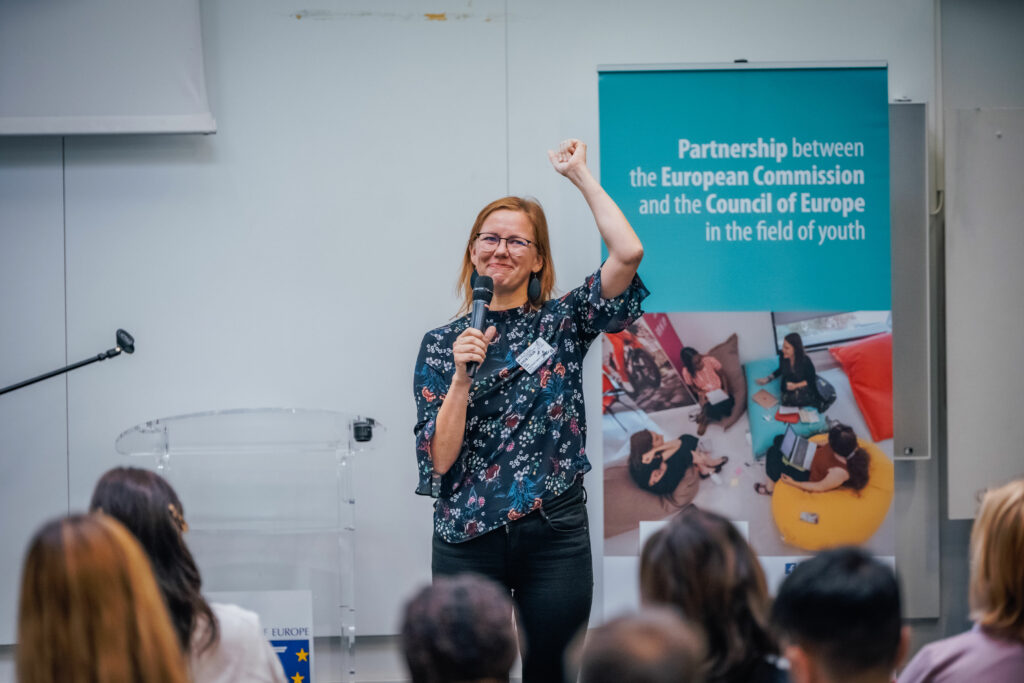
Toward a Multi-Species and Holistic Youth Policy
In the final sessions of the symposium, the general rapporteurs noted that climate emotions were more prominent than ever before. The event was widely regarded as successful, although some critical perspectives were openly voiced: the schedule was tight, and the repeated small group discussions could be tiring. Nevertheless, the symposium represented a new kind of European space where it was permissible to be present as an emotional being. The body, emotions, and multi-species relationships have been too absent from the traditional approach to European youth policy. Now, we have a strong reference point which opens political spaces for something different.
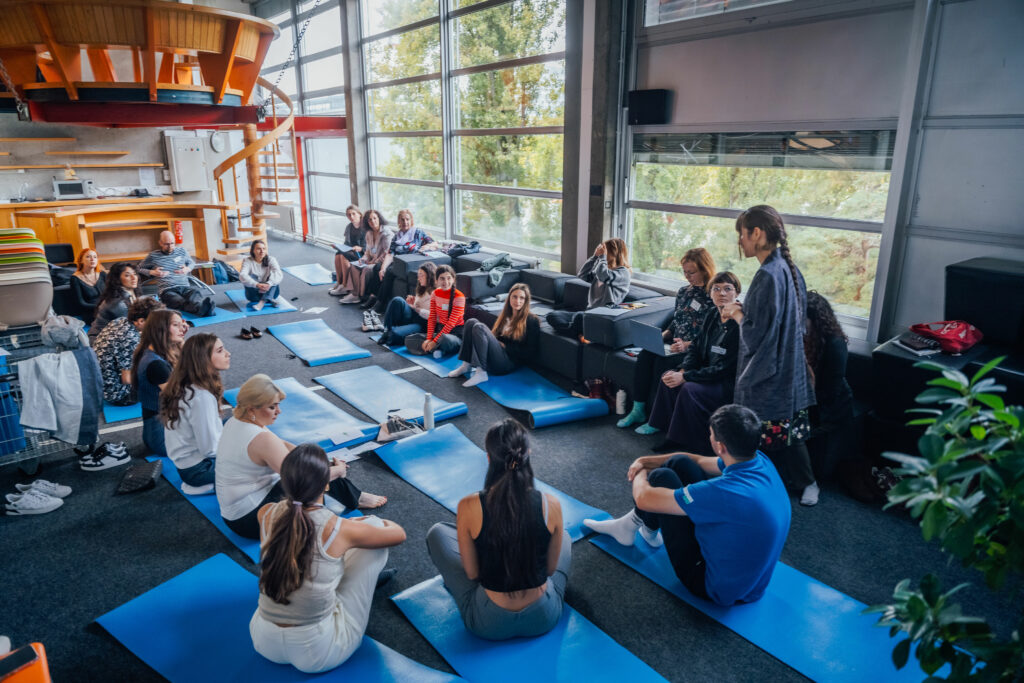
Writers
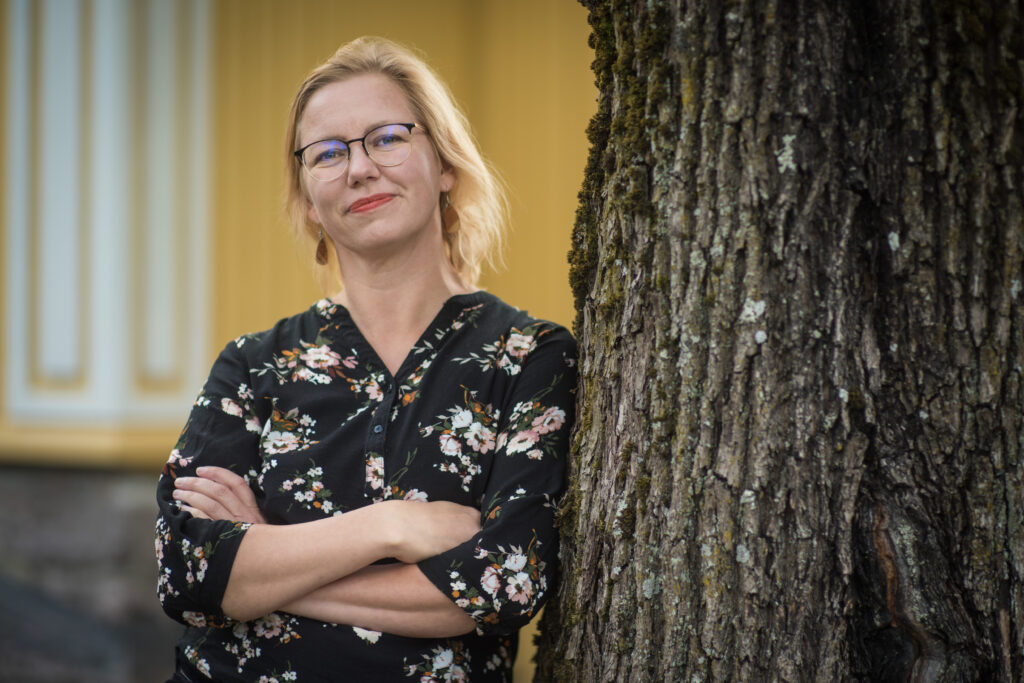
Sofia Laine is a Research Professor at the Finnish Youth Research Society. She has a PhD in Development Studies and has actively worked and published on issues related to (more) global youth research, youth engagement and more recently on the concept of planetary youth research. She is also a Dance Movement Therapist (DMT), a resource for developing artistic and creative embodied techniques for conducting youth research. Photo: Sami Perttilä.
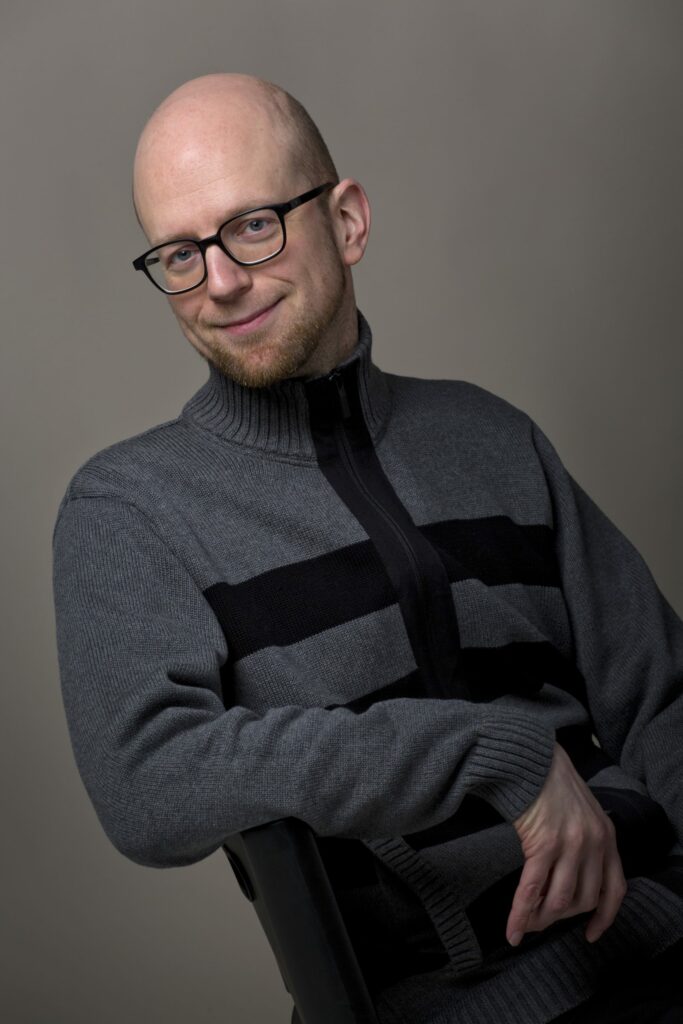
Dr. Panu Pihkala (b. 1979, he/his) from the University of Helsinki is an expert in interdisciplinary eco-anxiety research. He is also an adjunct professor of environmental theology (Title of Docent) at the University of Helsinki and a researcher in HELSUS Sustainability Science Institute. He hosts the podcast Climate Change and Happiness (Visit an external site. The link opens in a new tab.) together with Dr. Thomas Doherty.
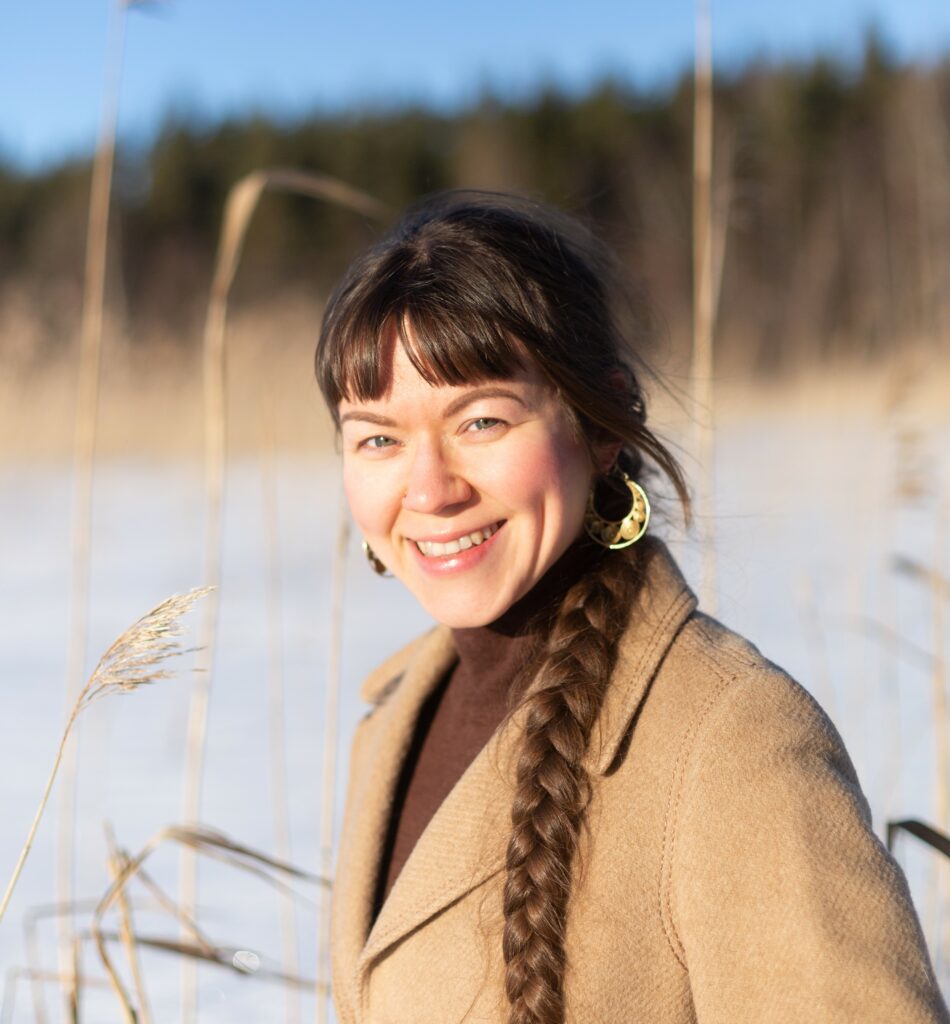
Juni Sinkkonen is doctoral researcher (University of Eastern Finland), psychologist and expert in Tunne ry. She facilitates trainings, workshops and writes about eco-emotions and ecopsychology.
Sources
Jamie Gorman, Tomi Kiilakoski, Lana Pasic and Esther Vallado (eds.) (2024) Youth and democracy in the climate crisis. Council of Europe and European Commission. https://pjp-eu.coe.int/en/web/youth-partnership/youth-and-democracy-in-the-climate-crisis (Visit an external site. The link opens in a new tab.)
Laine, Sofia (2023) New Framework Proposal: Planetary Youth Research. Youth and Globalization, 5(1), 15-43. https://doi.org/10.1163/25895745-bja10027 (Visit an external site. The link opens in a new tab.).
Laine, Sofia (2012) Young Actors in Transnational Agoras. Multi-Sited Ethnography of Cosmopolitan Micropolitical Orientations. Helsinki: The Finnish Youth Research Society, publications 121. Doctoral dissertation, Development Studies, Department of Politics and Economics, Faculty of Social Sciences, University of Helsinki. https://helda.helsinki.fi/bitstream/handle/10138/29314/youngact.pdf (Visit an external site. The link opens in a new tab.)
Pihkala, Panu (2024) Youth work and climate emotions. In Gorman et al. (eds.), Youth and democracy in the climate crisis. Council of Europe and European Commission, s. 89-109.
Pihkala, Panu (2024) Ecological Sorrow: Types of Grief and Loss in Ecological Grief. Sustainability 16 (2), 849. https://doi.org/10.3390/su16020849 (Visit an external site. The link opens in a new tab.)
Pihkala, Panu (2022) The Process of Eco-Anxiety and Ecological Grief: A Narrative Review and A New Proposal. Sustainability 14 (24), 16628. https://doi.org/10.3390/su142416628 (Visit an external site. The link opens in a new tab.).
Salami, Minna (2019) Sensuous knowledge. New York: HarperCollins.
